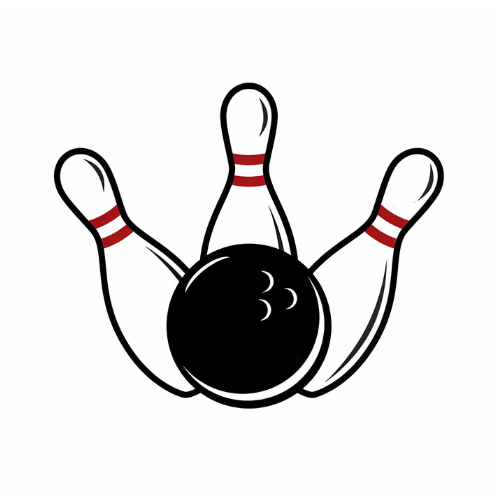Bowling is not an Olympic sport due to its lack of global reach and uniform popularity. Limited appeal to the International Olympic Committee (IOC) also contributes.
Bowling has consistently been a popular recreational activity, enjoyed by millions around the world for its social aspect and accessibility. Despite its widespread participation, bowling has struggled to earn a spot in the Olympic Games. This has largely been tied to the sport’s uneven international appeal and its struggle to be perceived as a competitive, athletic event by the IOC.
The criteria for Olympic sports involve factors such as worldwide popularity, governance, and adherence to the Olympic values—areas where bowling has faced challenges. Its proponents continue to push for inclusion, seeking to broaden its appeal and address the requirements laid out by the Olympics officials. The game’s absence from this prestigious arena has not diminished its allure, as bowling alleys remain bustling with enthusiasts who appreciate the skill and enjoyment it brings.
History Of Bowling
The ancient Egyptians rolled items in a form similar to bowling nearly 5000 years ago. By knocking down pins with stones, they created a game like the one we know today. In Germany, bowling had a religious origin, where pins represented sins and rolling a stone meant atoning.
As time passed, bowling evolved with variations in Italy, the Netherlands, and England. Each country had its own rules and pin shapes. By the 20th century, ten-pin bowling became standardized in the United States, influencing its rise as a competitive sport.
Bowling is loved worldwide, with millions enjoying it both casually and in leagues. Despite its vast appeal, bowling’s journey to becoming an Olympic sport has been complicated by various factors such as uniformity of rules and worldwide governance.

Credit: www.flobowling.com
Bowling And The Olympics
Bowling has made multiple efforts to join the Olympics. The sport’s governing body, the World Bowling, has presented its case to the International Olympic Committee (IOC) on several occasions. Despite these attempts, it has not become a part of the Olympic Games.
The IOC demands certain criteria for inclusion. Sports must be widely practiced worldwide, among both genders and by a vast number of countries. Additionally, they must add value to the Olympic Movement while preserving its history and integrity. Although popular globally, bowling has struggled to meet all these requirements.
Bowling’s Olympic Candidacy has been a topic of discussion among fans and athletes alike. The sport is recognized by the IOC but has not secured a spot in the Olympic program. This has been a point of disappointment for the bowling community, which sees the sport as deserving of Olympic status.
“`
Challenges To Olympic Inclusion
The perception of athleticism holds significant weight in Olympic sports selection. Bowling often faces scrutiny over whether it meets the rigorous physical demands expected of Olympic athletes. Critics argue that bowling may not showcase the endurance or strength comparable to other Olympic sports, which becomes a hurdle for its inclusion.
Standardization of rules is another challenge on bowling’s path to the Olympics. Since variations of the game exist worldwide, establishing a unified set of rules becomes essential. These variations complicate the acceptance of bowling as a potential Olympic sport.
Bowling lacks a single global governing body recognized universally, unlike sports already part of the Olympic Games. The presence of various organizations leads to inconsistencies and difficulties in lobbying for Olympic inclusion. The sport needs a united front to be seriously considered for the Olympic roster.
Arguments For Bowling In The Olympics
Bowling’s international appeal is evident with its popularity across different countries. Many people love to watch and play bowling. This sport brings together players from various backgrounds, showcasing a global community.
Some argue that its inclusion in the Olympic programme could foster more growth by introducing the sport to a wider audience. With increased visibility, more countries might invest in bowling facilities and training, which could lead to more competitive international play.
Bowling is known for its diversity and equality, as it can be played by individuals regardless of age, gender, or physical ability. Such inclusion aligns perfectly with the Olympic values of respect and equality. Recognizing these attributes, supporters believe that bowling deserves a place in the Olympics to reflect the diversity of the athletes and promote greater inclusion.
Future Prospects
The Olympic agenda is ever-evolving, adapting to global sports trends and audiences. This dynamic nature opens potential doors for sports like bowling to gain recognition. Olympic inclusion requires meeting specific criteria, such as universal appeal and governance structure.
Proactive advocacy and promotion play crucial roles in the pathway toward Olympic inclusion. Sports organizations must effectively showcase their sport, highlighting its global reach, competitive nature, and appeal to younger fans. A sport’s rise in popularity, through well-planned campaigns, can significantly impact the International Olympic Committee’s (IOC) decisions.
Possible pathways to inclusion involve consistent efforts by bowling’s governing bodies to align the sport with the Olympic values. Developing youth programs and increasing international competitions are strategic moves. By ensuring the sport is widely practiced and followed, they may sway the IOC’s consideration for the Olympic program.
FAQ
Why Isn’t Bowling Recognized As An Olympic Sport?
Bowling isn’t recognized as an Olympic sport due to factors like global popularity, governance issues, and adherence to Olympic standards. Despite its widespread recreational play, it lacks the criteria for inclusion such as universal appeal and a strong international federation.
What Criteria Must A Sport Meet To Join The Olympics?
A sport must be widely practiced across genders in numerous countries, have a strong international federation, and uphold Olympic ideals. It must also showcase competitive interest worldwide and align with the Olympic program’s objectives.
How Does The Ioc Decide On New Olympic Sports?
The International Olympic Committee (IOC) reviews sports based on factors like international appeal, youth interest, and gender equality. Surveys, technical evaluations, and program commission recommendations also influence IOC’s decision-making for including new Olympic sports.
Has Bowling Ever Been A Part Of The Olympics?
Bowling has never been a permanent Olympic sport. It was featured as a demonstration sport in the 1988 Seoul games but has not secured a regular spot in the official Olympic program since then.
Conclusion
As we’ve explored, several factors keep bowling outside the Olympic realm, from its niche appeal to logistical challenges. Yet, its global community clings to the hope of Olympic inclusion. The pursuit for this recognition continues, mirroring the sport’s unwavering spirit.
Bowling enthusiasts worldwide remain optimistic, eagerly awaiting the day their beloved game claims its spot on the Olympic stage.

